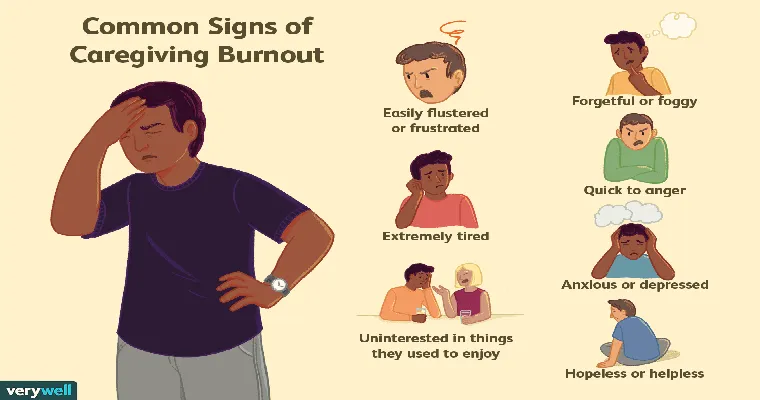Caregiving can be a deeply rewarding experience, but it often leads to feeling "overwhelmed", "exhausted", and even trapped. If you find yourself constantly trying to "fix" every problem or situation that arises, you may be caught in the "Fix-It Trap". This mindset can contribute significantly to "caregiver burnout", a state of physical, emotional, and mental exhaustion that can affect both your health and the quality of care you provide. Understanding the signs of this trap and how to escape it is crucial for maintaining your well-being as a caregiver.
The "Fix-It Trap" typically arises from a genuine desire to help loved ones. Caregivers often feel a sense of responsibility to solve problems, alleviate discomfort, and improve the quality of life for those they care for. However, this relentless pursuit of solutions can lead to neglecting one’s own needs and feelings. The pressure to be the ultimate problem-solver can quickly spiral into "stress" and "anxiety", making it difficult to perform caregiving tasks effectively.
One key sign that you might be in the "Fix-It Trap" is the inability to say no. If you feel compelled to accept every request or to take on additional responsibilities, this can quickly lead to feelings of resentment and exhaustion. It is vital to recognize that you are not a superhero; you are human, and your well-being matters. Setting boundaries is an essential step in preventing caregiver burnout.
Another indicator is the constant feeling of frustration or helplessness. If you find that your efforts to "fix" situations are met with resistance or do not yield the desired results, it can be disheartening. This can lead to a negative cycle where you feel inadequate, prompting you to work even harder, which ultimately results in more stress. Remember, it is essential to focus on what you can control and to accept that some situations may not have a straightforward solution.
In addition, caregivers often experience guilt for taking time for themselves. Many may feel that focusing on self-care is selfish when there are so many pressing needs to attend to. However, neglecting your own health can lead to serious consequences, not just for you, but for those you care for as well. Taking breaks, seeking support, and engaging in activities that bring joy are not indulgences; they are necessities for sustaining your ability to care for others.
To break free from the "Fix-It Trap", consider implementing practical strategies. Start by prioritizing self-care. Engage in regular activities that recharge you, whether that’s exercise, reading, or simply spending time with friends. Also, seek support from peers, family members, or professional counselors. Sharing your experiences can provide relief and insights that help you manage your caregiving responsibilities more effectively.
Finally, practice mindfulness. Being present in the moment can help you recognize when you are falling into the "Fix-It Trap" and allow you to step back and reevaluate your approach. Mindfulness techniques can also help reduce stress and promote a sense of calm.
In conclusion, being caught in the "Fix-It Trap" while caregiving can lead to significant burnout and emotional distress. By recognizing the signs and implementing strategies for self-care, setting boundaries, and seeking support, you can prioritize your well-being. Remember, taking care of yourself is not just beneficial for you; it ultimately enhances the care you provide to others. Escape the "Fix-It Trap" and reclaim your health and happiness today.





